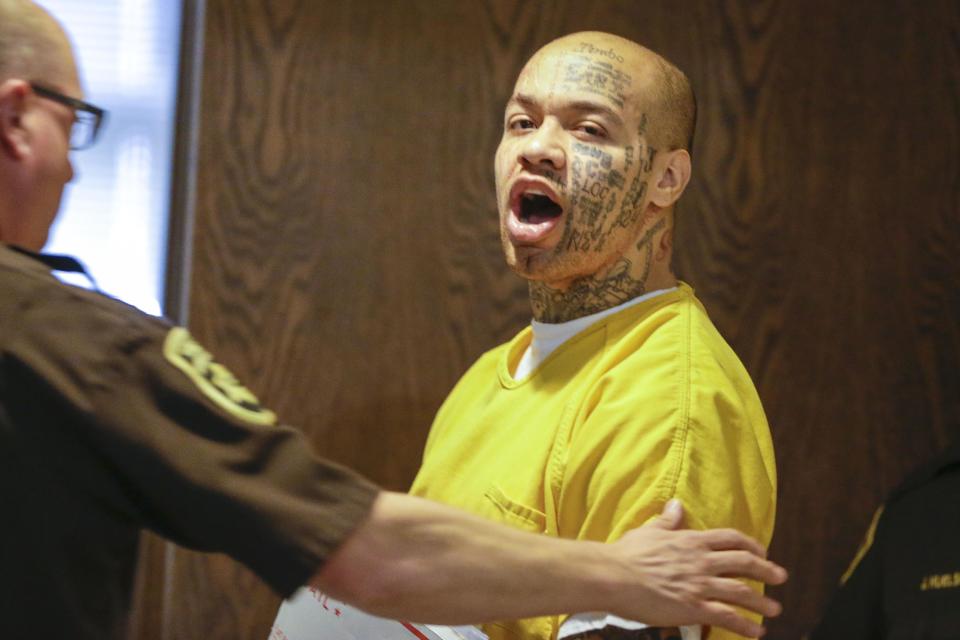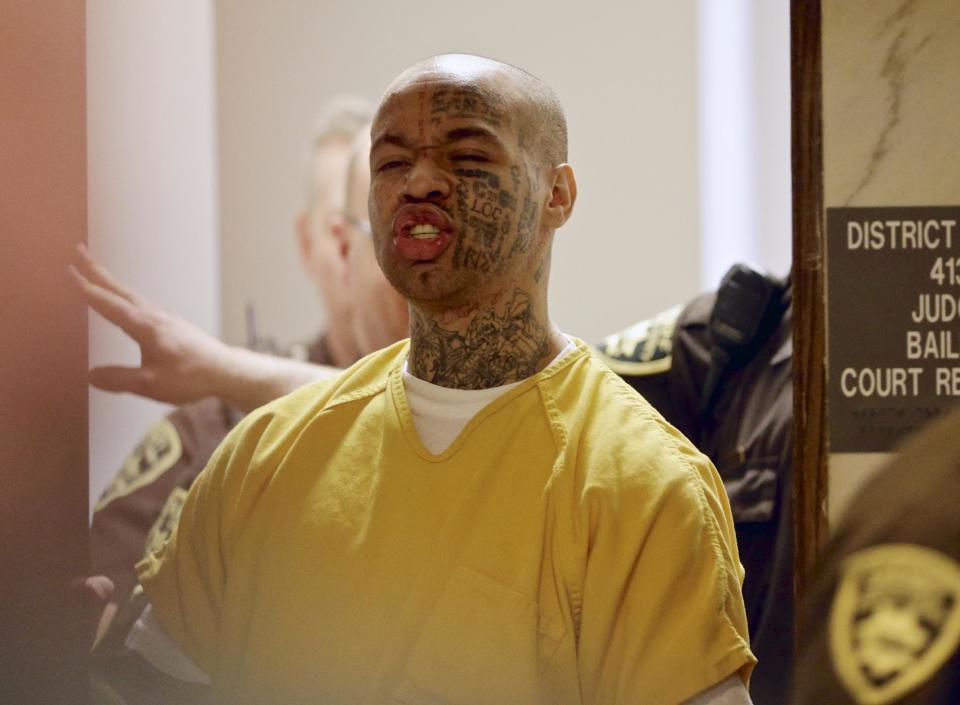Suspect found guilty in 4 Omaha shooting deaths
OMAHA, Neb. (AP) — A Nebraska man described by one prison psychiatrist as a "psychopath" and "one of the most dangerous people" the doctor had ever evaluated was found guilty Wednesday of four counts of first-degree murder in the shooting deaths of four Omaha people last summer.
Nikko Jenkins, 27, who is representing himself, filed a handwritten motion to the Douglas County District Court last week stating his intention to plead guilty to all felony counts against him. But on Wednesday, he pleaded no contest to the murder counts, eight weapons counts associated with the killings and two separate counts of being a felon with a gun.
Judge Peter Bataillon found him guilty of all charges.
A no-contest plea acknowledges there is sufficient evidence to convict but is not an admittance of guilt.
Prosecutors say Jenkins shot Juan Uribe-Pena, Jorge Cajiga-Ruiz, Curtis Bradford and Andrea Kruger in three separate ambushes over 10 days last summer after his July 30 release from prison without supervision.
While prosecutors say that Jenkins planned the killings to cover up robberies of the victims or to keep them from identifying him, Jenkins insisted he did not remember killing anyone, only that an Egyptian god named Ahpophis ordered him in a foreign language to kill the four as human sacrifices.
Dr. Eugene Oliveto, who serves as a psychiatrist for the prison system in Douglas County, testified in a February hearing on Jenkins' competency that Jenkins was a "psychopath" and "one of the most dangerous people I have ever evaluated."
Bataillon found Jenkins competent to stand trial.
Jenkins had flipped between expressing his guilt and declaring his innocence since being charged with the killings in September. After initially pleading not guilty, he declared in November that he wanted to plead guilty. He had changed his mind again by late January, saying he is mentally ill and should be released from jail.
During a contentious two-hour hearing in which Jenkins cursed and attempted to introduce various arguments rejected by the judge, he said Wednesday that he wanted to plead guilty because he believes his constitutional rights are being violated and that he can't get a fair trial in state court. The judge later let him plead no contest to the charges.
Jenkins had tried to plead no contest to all the charges earlier this month, but the judge refused to accept the plea because of the severity of the charges.
The judge later allowed Jenkins to plead no contest to the murder counts, as well, when Jenkins denied prosecutors' version of how Jenkins carried out the fatal shootings.
"My problem is, he disagrees with your factual analysis of the case," Bataillon said to Douglas County Attorney Don Kleine, in explaining why he could not accept Jenkins' guilty pleas to the murder counts. "He's not admitting to anything."
Police say Jenkins used a sawed-off 12-gauge shotgun loaded with deer slugs Aug. 11 to kill Cajiga-Ruiz and Uribe-Pena, whose bodies were found inside a pickup truck in southeast Omaha. Eight days later, he used a small-caliber gun to kill Bradford, a one-time prison acquaintance. Then, on Aug. 21, police say, Jenkins pulled Andrea Kruger from her SUV as she drove home from work and shot her four times before speeding off in her vehicle.
Prosecutors said Wednesday they will still seek the death penalty for Jenkins, who waived his right to a jury trial on the question of whether he should be put to death or sentenced to life in prison without parole. A three-judge panel will instead decide his fate.
Kleine said he doesn't know of a Nebraska case in which a person has been executed after pleading no contest to first-degree murder, but said Jenkins is not the first defendant to plead no contest and be convicted of first-degree murder.
Jenkins' release from prison is one of several that have prompted the state to reconsider its supervised release programs.
He had threatened violence while incarcerated and begged corrections officials to commit him to a mental health institution. A state ombudsman's report released in January faulted the department for its handling of the case.
Two bills introduced by Sen. Brad Ashford of Omaha on the topic were passed by the Nebraska Legislature this year and are awaiting the governor's approval. One would provide more supervision for former inmates and another would create programs that help them transition back to society.



